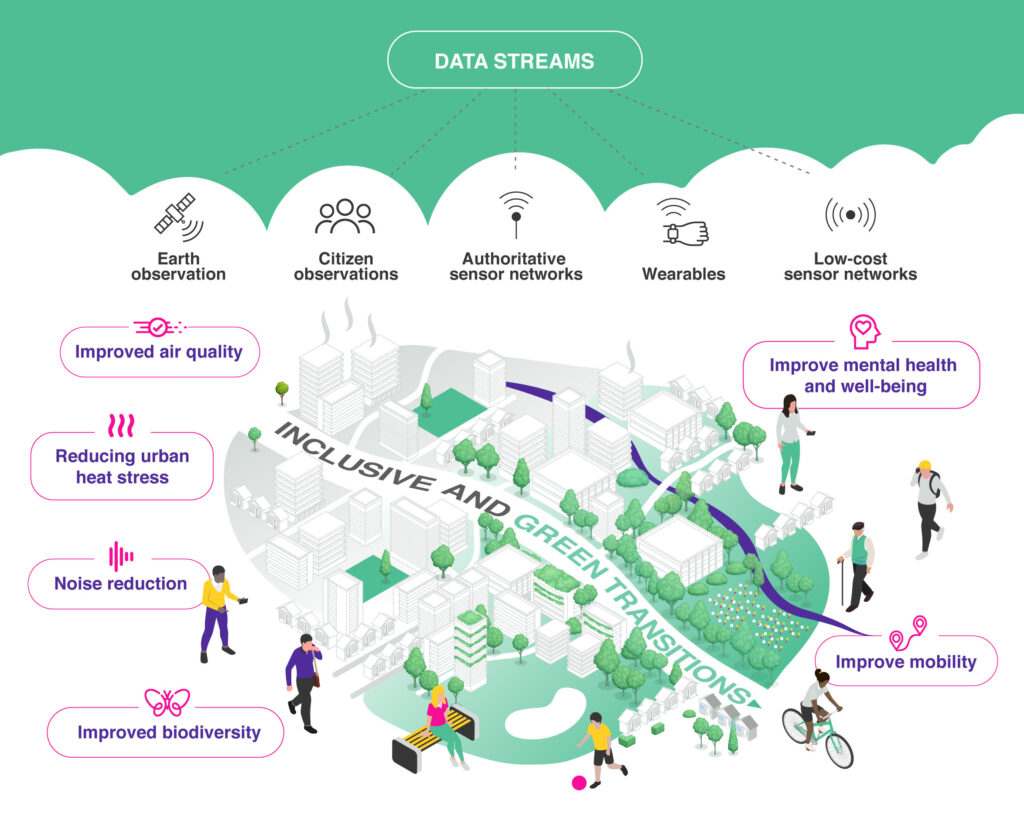DUNDEE is one of six cities across Europe to have joined forces to drive green urban futures across the continent.
Through the Urban ReLeaf initiative, Dundee aims to enable their citizens to implement nature-based solutions to issues such as air pollution and mental health problems.
Urban ReLeaf is a collaboration between 15 academic and private sector partners as well as the cities of Athens (Greece), Cascais (Portugal) Dundee, Mannheim (Germany), Riga (Latvia) and Utrecht (Netherlands).
The Horizon Europe-funded project will last for four years and builds on research into citizen observatories led by Professor Mel Woods, from the University of Dundee.

Professor Woods and colleagues from the University will work with Dundee City Council to deliver a pilot monitoring a range of environmental issues that relate to the built environment.
Thousands of members of the public will be asked to install sensors and use mobile phone apps to capture data on the local environment.
By gathering evidence and raising awareness of the problems they face, citizens can organise an effective grassroots, community, or local government response.
By 2050, it is expected that 83.7% of Europe’s population will live in cities, a marked increase from the estimated 72% in 2015.
While cities provide opportunities and infrastructure, residents also face threats such as harmful levels of air pollution and the heat island effect, which is becoming increasingly severe due to climate change.
Nature-based solutions such as the expansion of urban greenspace and tree planting can provide cooling effects, decrease air pollution, and improve mental health.
Several existing initiatives support this approach, but decision making is still a challenge for authorities due to the lack of reliable data to inform the locations that would most benefit from these measures.
Professor Woods said, “Citizen science along with other novel data streams like low-cost sensor networks, and wearable technologies can offer new insights to address these challenges.
“Building on the successful design and co-creation methods and tools we have developed, Dundee citizens and communities will be engaged to support the distribution of the sensors.
“We expect to produce new, co-created geographic mapping of grey and green spaces, including mobility and wellbeing, with datasets that include air quality.
“These will be used to transform urban strategy and value relating to green spaces and realise their longer-term benefits for climate resilience.”
Other outputs include an interactive public-facing map displaying current land use integrated with sensor data around fields of interest such as a tree registry, temperature and humidity monitoring, air quality monitoring and bioclimatic comfort.
By leveraging citizen science for public sector innovation, Urban ReLeaf aims to develop data ecosystems to support climate change adaptation, green infrastructure, and urbandesign planning.
In addition to the data gathering, bespoke community and culture labs will take place in each participating city in collaboration with local designers, artists, and citizen associations.
This will see them produce data visualisations alongside future scenario building and rapid prototyping games to develop greening solutions appropriate for individual communities.
Leader of Dundee City Council, John Alexander said, “We are delighted to be able to take part in this exciting research with the people of the city, which will provide a fresh perspective on how green spaces in Dundee are used.
“I’m also looking forward to finding out what opportunities there are to expand on and improve the quality of these spaces through this place-based approach.”
